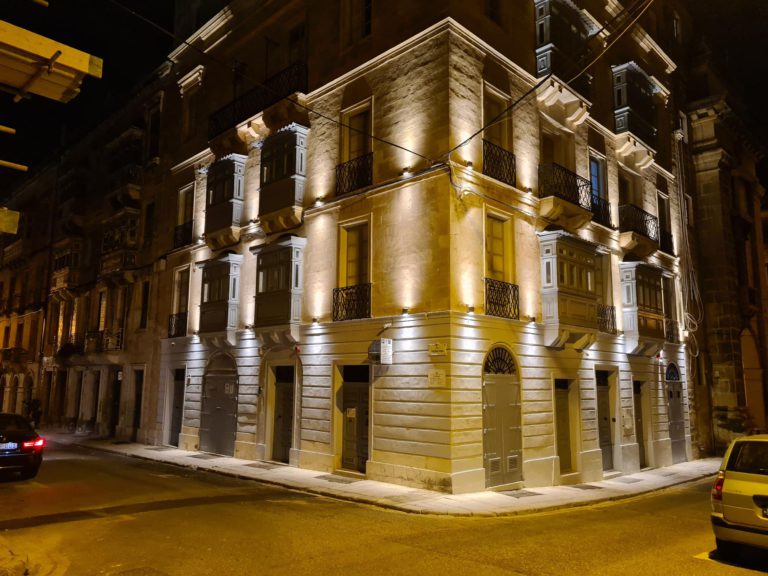Have you ever entered a shop, bar or restaurant and found that it only accepts card payments – not cash?
Possibly not, as the phenomenon is still in its infancy in Malta, with a population that remains attached to the physicality of banknotes and coins. But while such establishments are a relative rarity in Malta, they do exist, part of a move away from cash that is gathering steam across Europe.
The obvious next question, then, is why businesses can refuse to accept euro banknotes and coins.
After all, aren’t they defined as legal tender?
BusinessNow.mt reached out to the Central Bank of Malta (CBM) in an attempt to understand the legality – or otherwise – of this increasingly common practice.
The answer, as it turns out, is that the obligation to accept coins and banknotes is a bit of a legal grey area.
A representative for the CBM pointed to a decision by the European Court of Justice which ruled that the concept of euro banknotes and coins as legal tender, as means of payment denominated in a currency unit, signifies that that means of payment cannot generally be refused, at full face value, in settlement of a debt denominated in the same currency unit with the effect of discharging the debt.
That sounds clear enough – euro banknotes and coins are legal tender, and must be accepted. However, the Court added that limitations on the settlement of payments in notes and coins may be set-up by Member States for reasons of public interest, provided that other lawful means for the settlement of monetary debts are available.
So individual countries can place some limitations on the use of cash, like the legal restriction on the payment for certain high value items worth €10,000 or more introduced in Malta in 2021 on the basis of EU anti-money laundering (AML) legislation.
EU AML legislation implemented into Maltese law made it a criminal offence to settle transactions that relate to amounts of or exceeding €10,000, or its equivalent in another currency, in banknotes or coins, when such payment is linked to the purchase of antiques, immovable property, jewellery, precious metals, precious stones and pearls, motor vehicles, sea-craft, and works of art.
Given the above, we can conclude that banknotes and cash, being legal tender, must be accepted, except when the amounts and items involved can pose a money laundering risk, right?
Not so fast.
The European Central Bank refers to a European Commission Recommendation, issued in March 2010 (2010/191/EU), which states that retailers or other business operators cannot refuse cash payments unless both parties have agreed to use a different means of payment.
The Recommendation further states that displaying a label or posters indicating that the retailer refuses payments in cash, or payments made in certain banknote denominations, is not enough.
The retailer must provide a legitimate excuse, such as a difficulty in maintaining sufficient cash reserves to provide change, or concrete physical security risks due to the presence of large amounts of cash.
This would seem to close the matter entirely, but, again, we would be jumping the gun if we conclude that euro banknotes and coins must be accepted by shops.
That is because the above Recommendation is just that – a recommendation, which is not legally binding.
In fact, the CBM representative says that in June 2023, the European Commission published a legislative proposal on the regulation of legal tender of euro banknotes and coins.
One of the aims of this regulation is of explicitly setting out the mandatory acceptance of legal tender (euro banknotes and coins) which would be applicable in all Member States that have adopted the euro as their legal tender currency.
However, this legislative proposal has yet to be approved.
This means that there is not yet any concrete law that stipulates that cash must be accepted for payment, despite the jurisprudence and general institutional discourse on the matter.
For the consumer faced with a shop sign indicating that cash is not accepted, this means that they have no legal recourse from the police, the CBM, or the MCCAA.
If they are ready to open a court case and take it all the way to the European Court of Justice, they might win the case … but at that point, they should really just whip out their card.
Self-employed, employees and companies contribute €2.1 billion in 2023
Parliamentary data reveals five-year growth trends in fiscal contributions
MFSA concludes review of Crypto-Asset Service Providers following MiCA implementation
The Authority provided clear expectations and guidance to address certain concerns.
Malta Development Bank to launch schemes supporting sustainable development and creative sector
In 2024, the MDB launched the SME Guarantee Scheme and the Guaranteed Co-Lending Scheme






